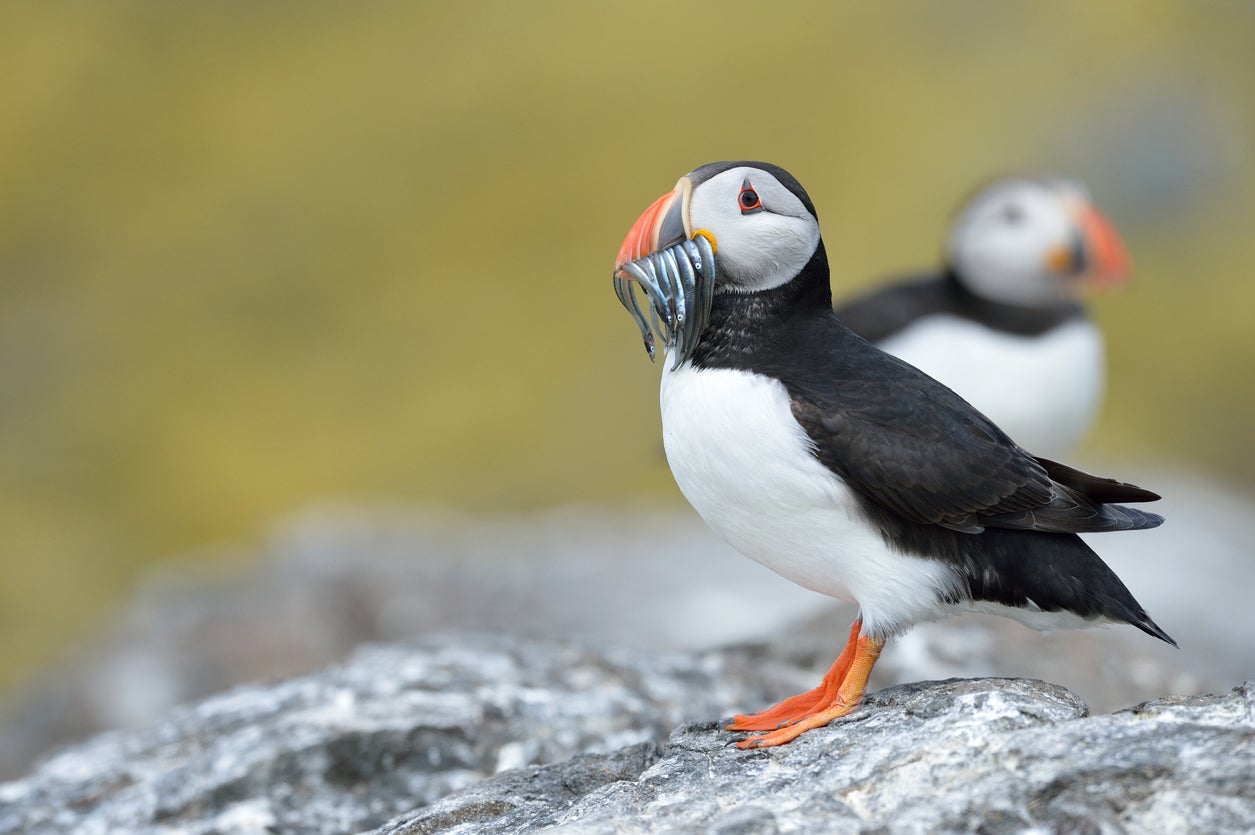Concerns for red-listed Scottish puffins after mass deaths
Ornithologists call for urgent research as Scottish puffins among those found washed up dead in Spain

Conservationists are concerned about Scotland’s population of puffins after hundreds of the birds were found dead or in poor health along the shores of Spain’s Canary Islands.
British ornithologists - those who study birds - have called for urgent research after a number of puffins washed up on the Spanish archipelago and other mainland regions, including Galicia and Asturias.
Scientists have so far been unable to establish how the puffins died but some fear changes in oceanography and climate change could be to blame.
The UK is home to around 580,000 pair of breeding puffins, with the vast majority of them living on a just few sites, according to the Royal Society for the Protection of Birds.
Puffins, which eat fish - especially sand eels - are a red listed species, meaning they are in critical decline.
Up to nine dead puffins were discovered on Zurriola beach in San Sebastian, northern Spain, last week while the council of Tenerife’s Centre for the Recovery of Wild Fauna confirmed as many as 140 had been found dead along its coast in the past few days.
Puffins spend most of their lives at sea, returning to land to form breeding colonies in March in April.
The Spanish Ornithological Society told The Herald Scotland that, of the puffins discovered on the Spanish coastline with leg rings, more had been ringed in Scotland than in other locations.
Of the four most recent dead puffin finds in the northern regions of Galicia and Asturias, three had been ringed in Sule Skerry, a remote islet 40 miles west of Orkney, and one in Garbh Eilean in the Shiant Islands, a small group in the Outer Hebrides, the society added.
Despite being one of the most comment seabirds in northern Europe, Puffin numbers have been declining for decades.

The number of sand eels has also been in decline in recent years. The Centre for Ecology and Hydrology said in a 2017 report that the number of sand eels in the diets of seabirds fell by 48 per cent between 1985 and 2014.
The decline coincided with an increase in the North Sea’s temperature by 0.037C per year since 1982.
The main threat to puffins is the changes in distribution and number of small fish, while ground predators introduced to breeding colonies and pollution are also serious hazards, the RSPB says.
The discovery of Scottish puffins washing up on the coast of Spain - more than a thousand miles away from their breeding habitat has bewildered experts.
“At this stage it’s hard to know exactly what is causing these unusual movements of birds outside their normal wintering locations and resulting in their deaths,” Dr Liz Humphreys, principal ecologist for seabirds at the British Trust for Ornithology, said.
“Avian influenza caused devastating losses at our breeding seabird colonies last year so it’s important to rule out that the virus isn’t causing changes in distribution or causing further birds to die.
“Other reasons could be storms or changes in oceanography that could be linked to climate change, but further research is urgently needed.”
The RSPB confirmed that similar incidents have occurred in the past but remain “not fully understood”, with the exact causes of this particular incident “not yet known”.
A spokesperson said the deaths in Spain - sometimes reffered to as ‘seabird wrecks’ - are often associated with bad weather.
“It is clear that this event coincides with storms in the area, “ the spokesperson added.
“However, seabirds can survive severe weather, and it appears that when birds are weakened by other factors – eg, difficulty in finding their prey fish – this can make them more vulnerable to storms.”






Join our commenting forum
Join thought-provoking conversations, follow other Independent readers and see their replies
0Comments